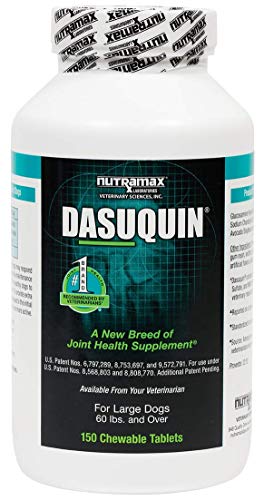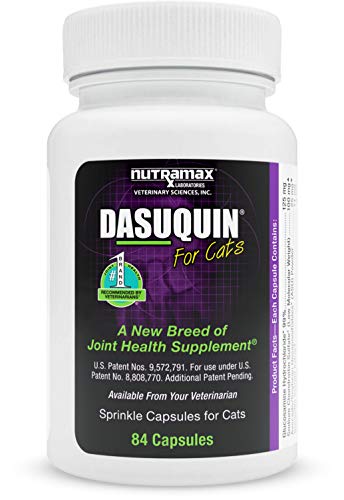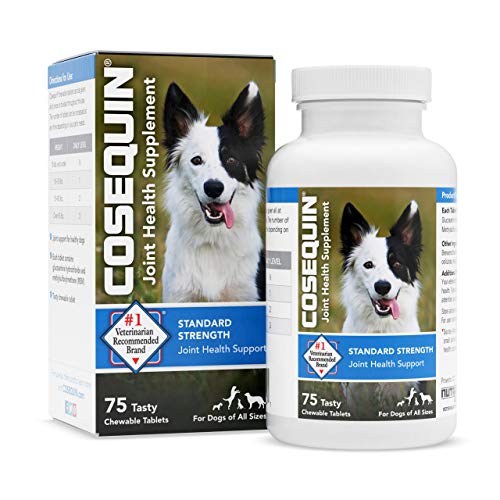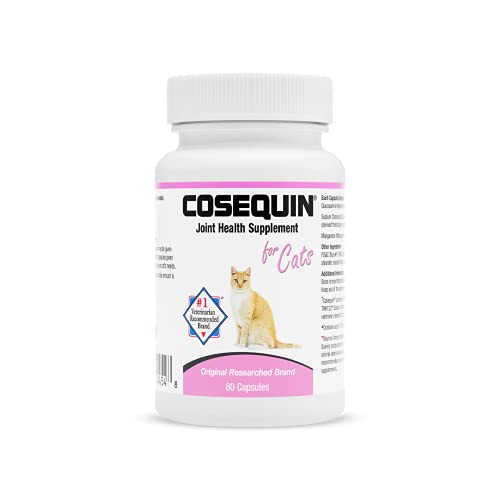- This post contains affiliate links. Read more here.
- Not a substitute for professional veterinary help.
As our pets get older, joint pain and other issues often appear, causing discomfort and threatening to slow them down. The joint supplement Cosequin has recently exploded in popularity, but another supplement, called Dasuquin, isn’t far behind.
Cosequin and Dasuquin are the two most commonly recommended joint supplements on the market. Both products promise to improve pets’ joint health. They’re also both made by Nutramax Laboratories, a trusted manufacturer of pet health products.
So what’s the difference between Cosequin and Dasuquin? More importantly, which one is best for your pets? We dug in to find out.
All About Joint Health
According to Dr. Rebecca Greenstein, a member of Rover’s Veterinary Medical Advisory Board, as many as 20% of dogs over the age of one suffer from arthritis. Illness, injury, and age are common causes, all resulting in a breakdown of cartilage, the tissue that cushions and protects bones at the joints. The signs of arthritis are more commonly recognized in dogs, but cats may be just as susceptible to the disease.
As the symptoms of arthritis progress, our pets’ bones become more exposed. Eventually, they begin to rub together at the joints. This makes it more and more painful for our pets to move—and movement is essential to our pets’ health and happiness.
My dog Logan is a 10-year-old Labrador Retriever with arthritis and a bad back. On good days, you’d never know that he has any issues with his joints. On his bad days, he struggles to climb onto the sofa or his bed, and he takes a little too long to get up from a reclined position. The bad days are hard, and it’s clear that they affect him not just physically, but emotionally too. A true retriever, Logan’s greatest joy in life is chasing a ball.
To help him stay happy, healthy, and moving, Logan enjoys regular visits to a specialized dog fitness facility. He swims laps and works on his strength, stability, and confidence in a low-key agility course. At home, we supplement his gym sessions with similar activities and a daily dose of Cosequin, making the Cosequin vs Dasuquin question intriguing on a personal level.
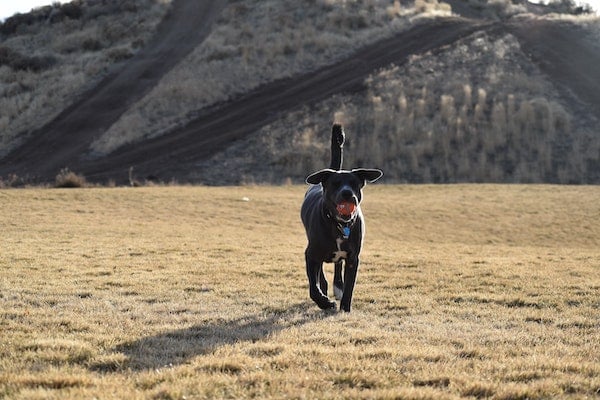
Aldo Carrillo via Pexels
What Makes Cosequin and Dasuquin Similar—and Different
Similar Intentions and Different Formulas
Cosequin and Dasuquin are both brand names for nutritional joint supplements produced by Nutramax Laboratories. Both supplements, or “nutraceuticals,” contain glucosamine and sodium chondroitin sulfate, two ingredients essential for joint wellness.
Both products are available in a variety of forms and formulas for both cats and dogs. Some versions include additional ingredients like methylsulfonylmethane (MSM), boswella serrata extract, and Omega-3s, the latter of which is only available in Cosequin.
However, the primary ingredient that makes Dasuquin different from Cosequin is avocado/soybean unsaponifiables, called ASU for short. Dasuquin contains ASU, while Cosequin does not.
ASU is a natural substance derived from avocado and soybean oils. In humans, ASU has been found to fight inflammation and improve symptoms of osteoarthritis, autoimmune diseases, and other health concerns.
For pets, Dasuquin’s manufacturers say that the addition of ASU to glucosamine and chrondoitrin sulfate products makes those supplements more effective in preventing cartilage damage than the glucosamine and chrondoitrin sulfate alone.
The Cost Difference
Beyond their components, cost is another point of diversion in the debate over Cosequin vs Dasuquin.
At the time of this writing, a 150-count bottle of Dasuquin is roughly double the price of a similarly-sized bottle of Cosequin. For some pet owners, this price may be worth it for the addition of ASU. Others may find that Cosequin is effective enough not to warrant the additional expense.
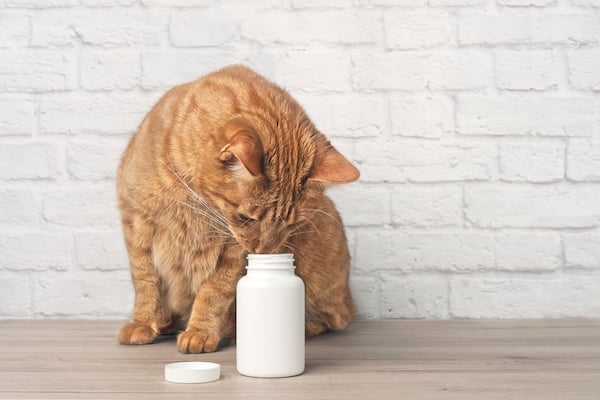
Lightspruch via iStock
Cosequin vs Dasuquin: Which is Better for Your Pet?
Because of the inclusion of ASU, some people believe that Dasuquin is better than Cosequin for severe joint issues like hip dysplasia or during recovery from joint injuries or even surgery. However, the use of ASU may not be appropriate for all pets. ASU can cause an upset stomach in some animals. Additionally, a soy allergy could result in a potentially dangerous allergic reaction.
Always consult your veterinarian before starting your pet on any supplements, including Cosequin and Dasuquin. Because they know your pet’s specific needs and situation, they can help you decide on not only Cosequin vs Dasuquin, but also which formulas will work best for your pet, as both products offer a variety beyond what is listed here. Plus, knowing what your pet is taking better equips your vet to help if something goes wrong.
Nutramax Laboratories, the maker of both Cosequin and Dasuquin, has a good reputation among veterinarians. However, when we spoke to Dr. Greenstein about Cosequin, she quickly pointed out that all supplements come with a certain amount of risk. Supplements are not regulated in the same way as medications. More often than not, they’re presumed safe rather than proven safe.
Millions of dogs and cats have used both Dasuquin and Cosequin without issue, contributing to veterinarians’ confidence in recommending these products specifically. Purchasing known brands from reputable sources helps to ensure that you’re giving your pet the best and safest chance at better joint health.
This classic version of Dasuquin is specially formulated for large dogs and comes in chewable tablets. It’s also available for small/medium dogs and in soft chews for both large and small/medium dogs.
For cats, Dasuquin comes in “sprinkle capsules”—just open the capsules and sprinkle it on your cat’s food.
For dogs, Cosequin comes in both standard and maximum strength, with several other specialized formulas crafted for senior dogs, little dogs, and more.
Like Dasuquin, the standard Cosequin formula comes in both capsule and soft chew forms for cats.

